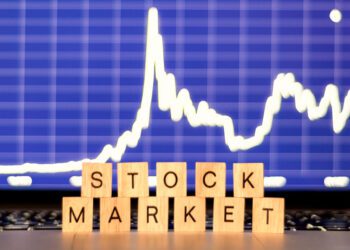Understanding the intricate relationship between the Indian economy and its stock market is crucial for investors. This article explores how economic indicators influence market trends and investment decisions.
The Indian Economy and Stock Market Dynamics
- Overview of the Indian Economy: As one of the world’s fastest-growing economies, India presents a unique blend of traditional sectors like agriculture and modern industries like IT and pharmaceuticals.
- Stock Market as an Economic Indicator: The stock market often acts as a barometer for the overall health of the economy, reflecting investor sentiment about current and future economic conditions.
Key Economic Indicators and Their Impact
- GDP Growth: The Gross Domestic Product (GDP) growth rate significantly influences market performance. Higher GDP growth typically boosts investor confidence and stock market performance.
- Inflation Rates: Inflation impacts consumer purchasing power and corporate profitability, thereby affecting stock prices.
- Interest Rates: Set by the Reserve Bank of India (RBI), interest rates can influence stock markets through their effect on borrowing costs and consumer spending.
- Foreign Exchange Rates: Fluctuations in the INR against other currencies can impact export-oriented businesses and sectors, affecting their stock performance.
Sector-Specific Economic Influences
- Banking and Finance: This sector is directly influenced by RBI’s monetary policies, interest rates, and liquidity measures.
- Infrastructure and Construction: These sectors are often impacted by government spending and policies related to infrastructure development.
- IT and Outsourcing: These industries are influenced by global economic conditions, particularly in the US and Europe, which are major markets for Indian IT services.
Interplay Between Global and Indian Economies
- Global Economic Trends: The Indian stock market is increasingly affected by global events and trends, such as trade wars, global financial crises, and international oil prices.
- Foreign Institutional Investors (FIIs): FIIs play a significant role in the Indian market, and their investment decisions are often influenced by global economic conditions.
Investor Strategies in the Context of Economic Trends
- Cyclical vs. Non-Cyclical Stocks: Investors often choose between cyclical stocks, which are sensitive to economic cycles, and non-cyclical or defensive stocks, which are more stable during economic downturns.
- Economic Moats: Investing in companies with strong economic moats (competitive advantages) can be a wise strategy in fluctuating economic conditions.
Conclusion
The Indian stock market and the broader economy are deeply interconnected. Investors who understand this relationship and closely follow economic indicators can make more informed investment decisions, aligning their strategies with economic cycles and trends.




















